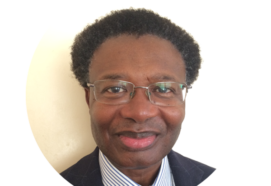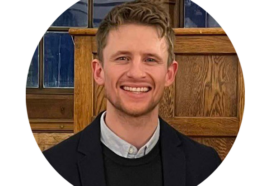This was the third session celebrating the launch of the CAMH Special Issue on ‘Child and youth mental health & the global ecological crisis’ (due to be published in January 2022). The session was recorded on 12 January 2022.
ACAMH Members can receive a CPD certificate, simply email and let us know the date and time that you watched the recording.
The Editors of this Special Issue Professor Bernadka Dubicka, Professor Ann Sanson, plus Professor John Wiseman, discussed the mental health challenges of facing the reality of the climate crisis, and what we can learn from philosophers, faith leaders and environmental activists/heroes to help us to sustain our efforts to mitigate the crisis, with hope and courage. We were also delighted to be joined by three young people to give key perspectives Rhiannon Hawkins, Kirsten Hoffman, and Nathan Randles.
Resources
Hope and Courage in the Climate Crisis Prof John Wiseman’s book, Hope and Courage in the Climate Crisis: Wisdom and Action in the Long Emergency.
Where to find courage and defiant hope when our fragile, dewdrop world seems beyond saving – Prof John Wiseman’s from The Conversation
Dr. Laelia Benoit’s 17-min podcast on ‘The Anxiety and Grief of the Ecological Crisis’
The Royal College of Physiatrists ‘Eco distress: for young people’
The Royal College of Physiatrists position on sustainability
Maria Ojala Commentary: Climate change worry among adolescents—on the importance of going beyond the constructive–unconstructive dichotomy to explore coping efforts—a commentary on Sciberras and Fernando (2021)
Gina Martin, Kristen Reilly, Haley Everitt, Jason A. Gilliland Review: The impact of climate change awareness on children’s mental well-being and negative emotions – a scoping review
Rhiannon Thompson, Helen L. Fisher, Lindsay H. Dewa, Tania Hussain, Zaina Kabba, Mireille B. Toledano Adolescents’ thoughts and feelings about the local and global environment: a qualitative interview study
Sanson, A. & Bellemo, M. (2021). Editorial: Children and youth in the climate crisis. BJPsych Bulletin, 45, 205 – 209, DOI: https://doi.org/10.1192/bjb.2021.16
Sanson, A.V., Van Horne, J. & Burke, S.E.L. (2019) Responding to the impacts of the climate crisis on children and youth. Child Development Perspectives, 13 (4), 201–207. DOI: 10.1111/cdep.12342
Sanson, A., Malca, K.V.P., & Van Hoorn, J. (2021, in press) Impact of the climate crisis on children’s social development. In P.K. Smith & C.H. Hart (Eds), Handbook of Childhood Social Development 3rd ed.. Wiley-Blackwell.
Sanson, A. V., & Burke, S.E.L. (2019). Climate change and children: An issue of intergenerational justice. In N. Balvin & D. Christie (Eds), Children and peace: From research to action. (pp343-362). Springer Open Peace Psychology Book Series.
About the speakers
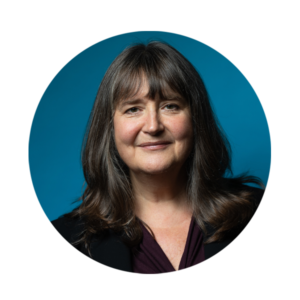
Professor Bernadka Dubicka is a Consultant Psychiatrist at Pennine Care NHS Foundation Trust, Honorary Professor at the University of Manchester, and Editor-in-Chief of the journal Child and Adolescent Mental Health. She is the former Chair of the Royal College of Psychiatrists (RCPsych) Child and Adolescent Faculty, where she played a leading role in developing the eco-CAMHS group; contributed to the RCPsych position statement on the ecological crisis; and has commissioned a special issue of CAMH on the ecological crisis (Feb 2022) with invited editor, Dr Ann Sanson. She attended COP26 in Glasgow as an RCPsych observer.
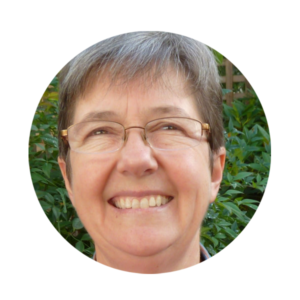
Professor Ann Sanson is a developmental psychologist whose research has principally focused on social and emotional development from infancy to adulthood. She has been a principal investigator on major Australian longitudinal studies for over 30 years. She has also had an ongoing engagement with the contributions of psychology to social issues: e.g. as the Australian Psychological Society’s inaugural Director of Social Issues. Her current work focuses on the impact of the climate crisis on current and future generations of children. She is an Honorary Professorial Fellow at the University of Melbourne, and a Fellow of the Australian Psychological Society and the International Society for the Study of Behavioural Development. She has over 200 publications.
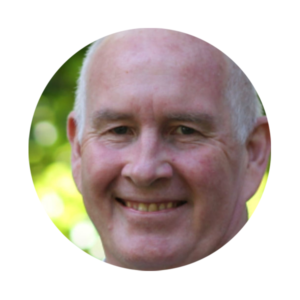
Professor John Wiseman is a Senior Research Fellow with Melbourne Climate Futures and Melbourne Sustainable Society Institute ; and an Adjunct Professor at the Melbourne School of Population and Global Health at the University of Melbourne. His other current roles include Visiting Fellow, Centre for Climate Economics and Policy, Australian National University; Research Fellow at the Centre for Policy Development and Board member of The Next Economy.
Previous academic and public policy roles include Deputy Director, Melbourne Sustainable Society Institute; Foundation Director, McCaughey Centre for Community Wellbeing, Melbourne School of Population and Global Health and Assistant Director, Policy Development and Research, Victorian Department of Premier and Cabinet.
John’s major research and policy contributions have been in the fields of social justice and citizen engagement; globalisation impacts; social wellbeing policy frameworks and indicators; sustainability transitions; and climate change risks and solutions. His current work focuses on the actions needed to accelerate the transition to a just and resilient post-carbon society.
His most recent book is Hope and Courage in the Climate Crisis, Wisdom and Action in the Long Emergency, Palgrave Macmillan, 2021.

Kirsten is a climate activist and law student at the Australian National University in Canberra. She joined Extinction Rebellion in June 2021, right when climate activists Violet Coco, Eric “Sergeio” Herbert, Andrew George, Mark Conroy and Sasha Steindl arrived in Canberra, Australia’s political epicentre. Kirsten was a legal observer during the August Barry Drive Blockade against the Australian Petroleum Production and Exploration Company, and the graffiti of the Department of Agriculture, Water and Environment, protesting the Environmental Minister’s appeal of Sharma v Minister for Environment. In October Kirsten was arrested five times in Extinction Rebellion protests and spent three nights in the ACT watch house, the last for blockading Commonwealth Avenue bridge on top of a truck. In November Kirsten joined the Blockade Australia mobilisation and pressed a stop button in the world’s largest coal port in Newcastle, Australia
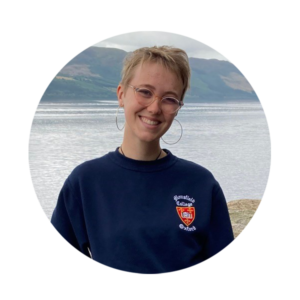
Rhiannon is a young person representative for the Royal College of Psychiatrists, a trustee at the Green Economics Institute and currently studies Geography at the University of Oxford. She has been involved in a variety of different Royal College eco distress projects, for example: planning conferences, doing press interviews and contributed to the College’s climate position statement. She has also written a debate piece within the ACAMH within their special COP26 issue. Rhiannon has also been a part of the Green Economics Institute’s delegation to COP26 and helps write magazine and book contributions for the Institute. She has strong interests in Climate Change, eco distress and intersectionality.

